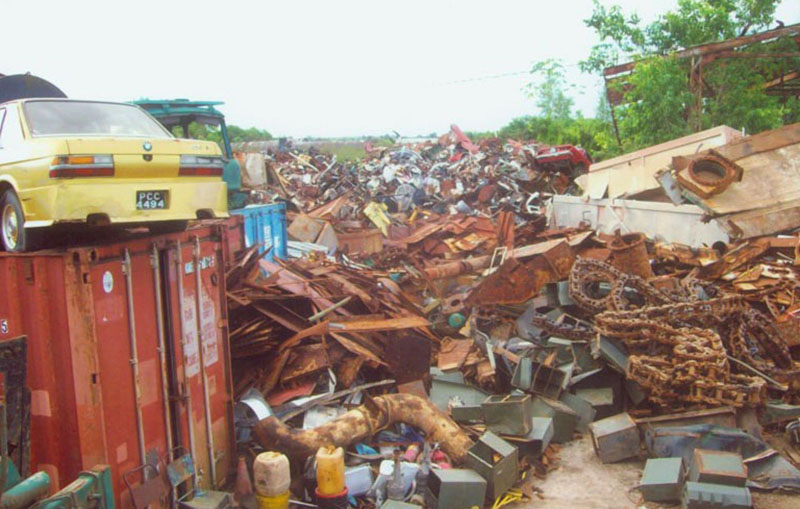The authorities in Trinidad and Tobago having moved to crimp what they see as the excesses of the scrap metal iron trade in the twin-island Republic would appear to be heading for an engagement with the World Trade Organization (WTO) after the local Scrap Metal Dealers Association dispatched a missive to the international regulatory body seeking its intervention to set aside the current six-month ban of scrap metal exports.
The Scrap Iron Dealers Association of T&T has written a letter to the Director General of the World Trade Organization (WTO) Ngozi Okonjo-Iweala, seeking her intervention to have the current six-month ban on scrap metal exports in Trinidad and Tobago lifted.
The body is asking the WTO head to remove the ban on the scrap trade, instituted by the authorities in Port of Spain in response to what the country’s National Security Minister Fitzgerald Hinds and Commissioner of Police McDonald Jacob declared to be acts of vandalism.
It transpires, according to the Association’s President Allan Ferguson, that Trinidad and Tobago, which he said has been a member of the WTO since March 1995, is duty bound to adhere to the guidelines and policies of the organization. Ferguson is reportedly contending that the WTO’s rules “prohibit discrimination between trading partners but provides exceptions for environmental protection, national security, and other important goals.” What the local scrap metal body is seeking, he says, is “the guidance and intervention of the WTO in this matter which we believe is important to the survival of the industry.”
Ferguson is further reportedly contending that the ban was imposed “despite many attempts made by the Association to work with the government to find solutions to the issue.” Those efforts, he says, have included calls on the government, since 2013, to implement a new scrap iron policy that would help to address the problem.
The Scrap Metal Association President is reported in a September 5 Trinidad Express article as saying that the six-month ban had already had a severe negative impact on the lives and livelihoods of thousands of citizens of Trinidad and Tobago whose incomes are below the poverty line. The ban, he says, also affects the wider scrap metal trade since there are businesses from round the region who market their scrap metal in Trinidad and Tobago.
Ferguson is calling on the WTO to back the Association’s lobby for a reversal of the ban since, he says, it was proving to be detrimental to the existence of the scrap iron industry in Trinidad and Tobago and its future.
More than a decade ago metal theft, some of which was linked to the formal scrap metal industry, had plagued huge swathes of coastal Guyana, the thieves targeting key utility installations including the telecommunications and water supply sectors, forcing the government to institute draconian rules that included a temporary ban on scrap exports as well as the institution of checks and balances that sought to track the origins of metals being traded in the country. The problem was only brought under control following an aggressive lobby from the telecommunications sector that it was being particularly targeted for its copper infrastructure and assertive moves by the authorities to prosecute metal thieves and to institute procedures and regulations on the trade that placed restrictions on exports and compelled traders to properly account for the scrap metal that they had acquired.





